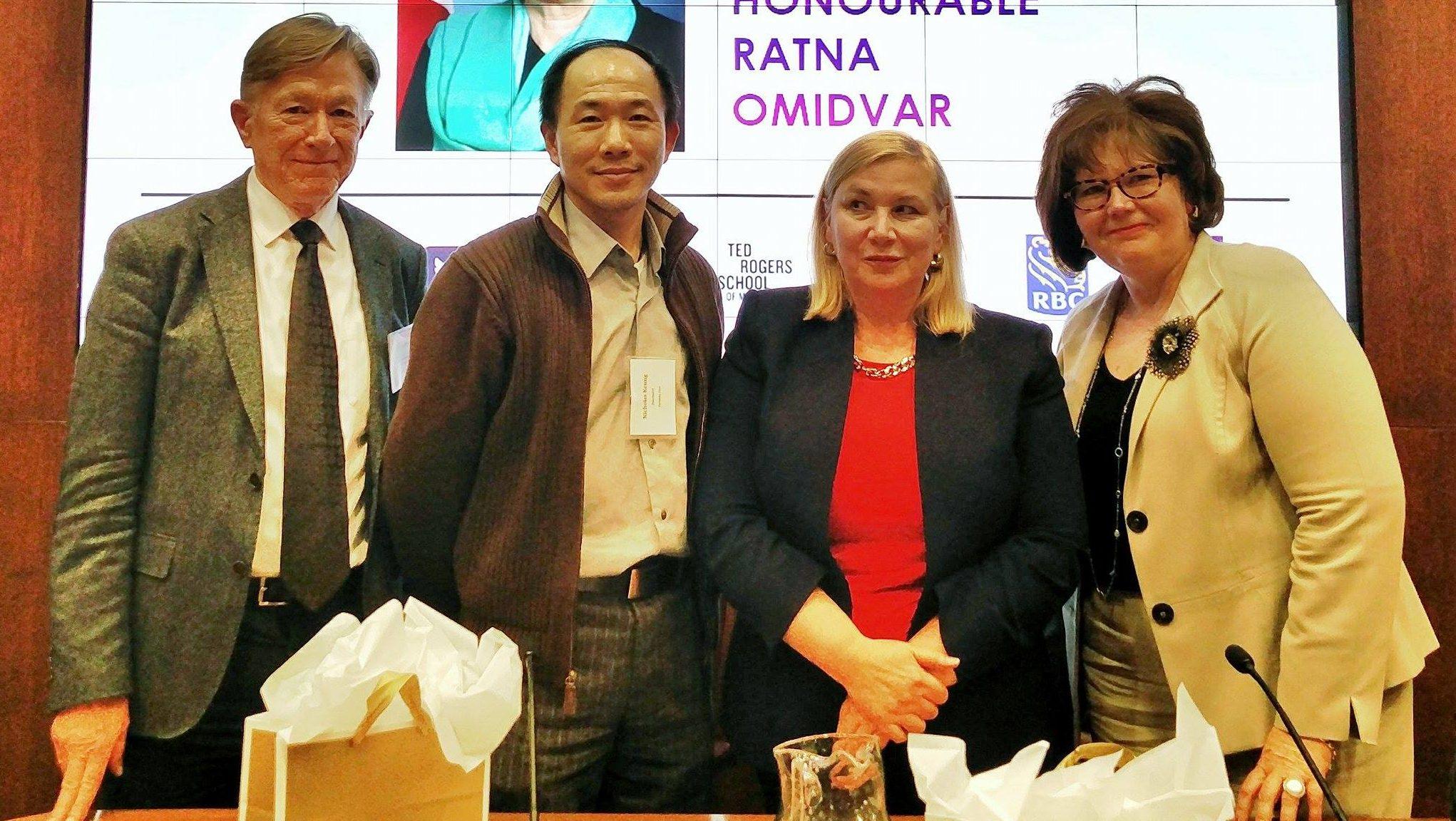By Raneem Al-Ozzi
People with Asian names are less likely to be called for job interviews than people with English names and equivalent or lower Canadian qualifications, according to a study released Wednesday.
The joint study conducted by Ryerson University and University of Toronto was released at The Munk School of Global Affairs on Jan. 25, where panelists discussed potential solutions.
The panel included Wendy Cukier, the founder and director of Ryerson’s Diversity Institute, Nicholas Keung, a journalist for the Toronto Star, Jeffrey Reitz, who co-authored the report, and Corinne Prince-St-Amand, the director general for the integration branch of Immigration, Refugees and Citizenship Canada.
Among other things, the report compared the interview and hiring prospects for Asian-named applicants with master’s degrees, to those of Anglo-named applicants without master’s degrees.
The results showed applicants with Asian names and master’s degrees were less likely to receive callbacks for interviews than applicants without master’s degrees but with English names
“Audit reports like this are important because it very clearly shows that employer decisions and biases actually play a role in the disadvantages that minorities face,” said Rupa Banerjee, co-author of the report and an associate prof of human resource management at Ryerson.
The report also focused on the impact of variations between company size, the type of jobs posted and their required skill level.
While larger companies exhibited less bias within the hiring process, the bias still existed.
Applicants with Asian names and Canadian credentials had a lower callback rate of 20.1 per cent, whereas in smaller organizations the numbers are nearly doubled at a 37.1 per cent lower callback rate.
According to the study, the rate of receiving calls is less overall and significantly lower in high-skill jobs, compared to low-skill jobs. High-skill jobs included accountant, a civil engineer or a marketing manager, and low-skill jobs included bookkeeper, clerk or cashier.
Applicants with Asian names and Canadian qualifications, like a college or a university degree, were 32.9 per cent less likely to get called back for high-skill jobs, compared to 30.7 percent less likely for the low-skill jobs.
“It should be stressed that at every size of employer and at every skill level, the disadvantage does remain,” said Banerjee.
The study is based on research conducted by Philip Oreopoulos, U of T prof of economics and public policy, in 2011. In his study, Oreopoulos sent out 12,910 resumes with fake standardized credentials and qualifications to over 3,225 job postings.
According to Oreopoulos’ research, people with Asian names—mainly Indian, Pakistani and Chinese names—are less likely to be called in for interviews than people with Anglo names.
He found Asian-named applicants had a 30 per cent less callback chance compared to their Anglo-named counterparts even when both applicants had the same Canadian credentials, education and experience.
Cukier said internships and educational job opportunities give people a chance to show what they can do. They provide opportunities to help people better understand how to become successful in a work environment and help erode the “othering” of people who may be different.
“It’s important to have an integrated strategy. There’s no one thing that’s going to change how people feel about people who are different from them. You have to tackle it at different levels,” said Cukier.
Prince-St-Amand addressed the notion of the “fear factor,” explaining that when an employer thinks about filling a vacancy, they want to fill it in with someone they are comfortable with, someone who is like them.
After one works with people who are different, the fear factor goes down. Then they are able to see differences can be used as a means of advancement, she said.
Cory Chan, a first-year accounting and finance student, rarely uses his unofficial Chinese name. He said that it is not uncommon among Asian people to have an Anglo and Asian name.
“[Parents] want their children to assimilate into Western culture, and so that they’ll fit in at school and at work,” said Chan, 18.
Similarly, Raymond Thei, a first-year computer engineering student, does not go by his Chinese name. He primarily uses his Anglo name because it is easier for everyone to pronounce. Thei knows that some people may be biased towards Asians, which in turn leads Asians to adopt Anglo sounding names. He believes this might have been part of the reason his parents gave him an English name.
“There are interventions that can change implicit biases. It’s not that these things are not changeable. You have to be aware of your own biases, and make a conscious effort to counteract them,” said Banerjee.













Isaac
Isn’t a study like this only supposed to have one variable? Why did the researchers give the Asian names masters degrees? Not saying the discrimination isn’t there, but maybe the master’s degrees were a factor, overqualified, higher pay expectation, etc.
Sara
They also submitted resumes with English names and masters degrees. Both types of applicants were given equivalent education. It just turns out that English names with bachelor degrees received more callbacks than Asian names with master’s degrees.